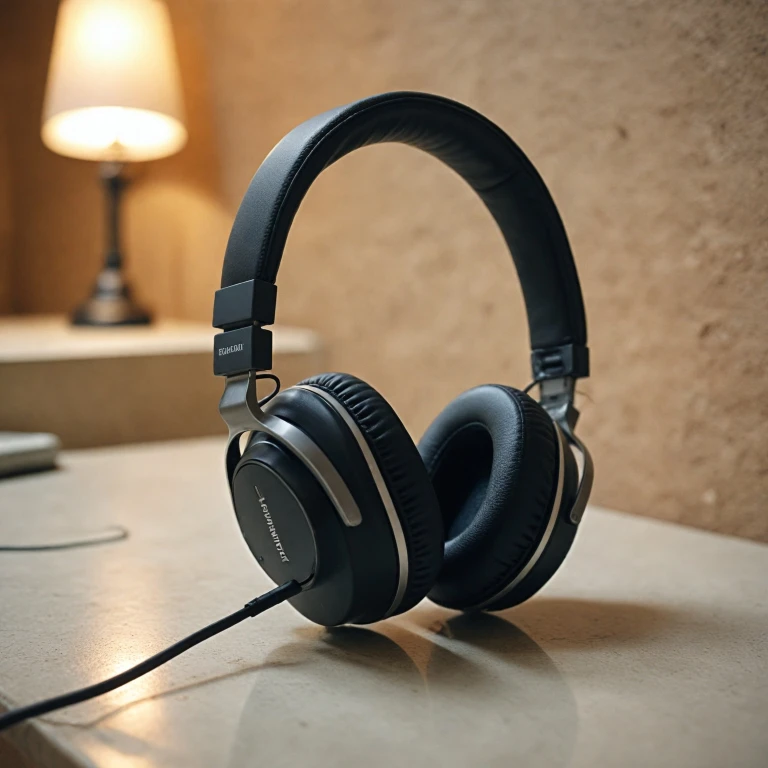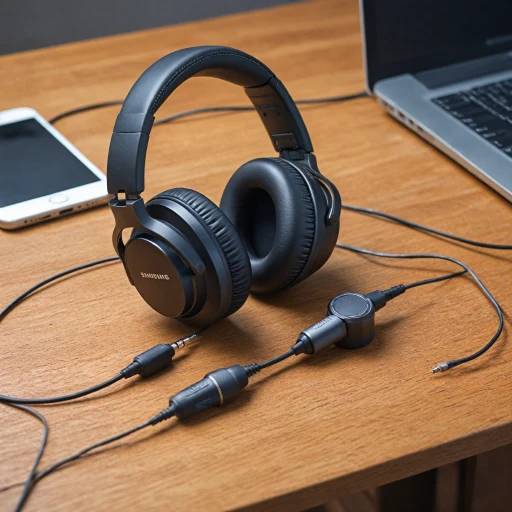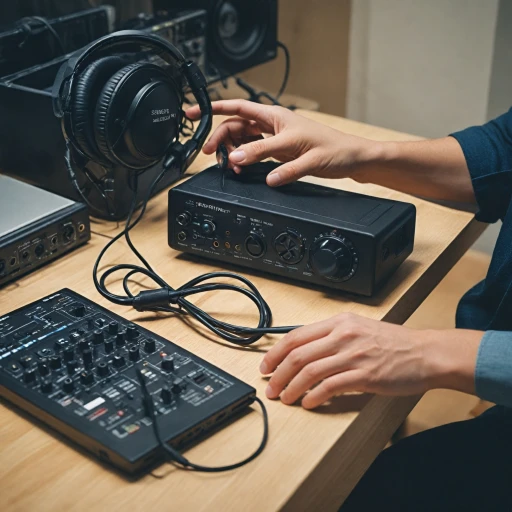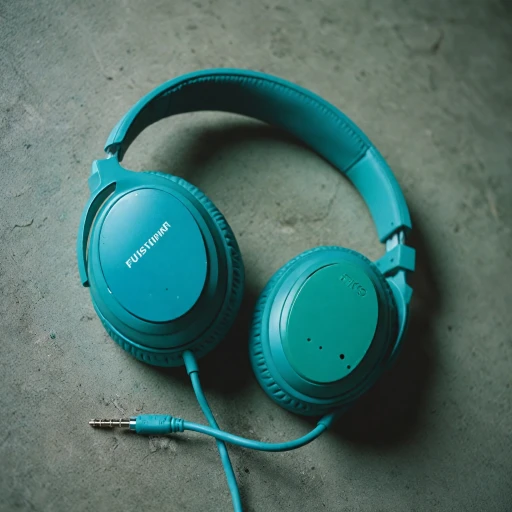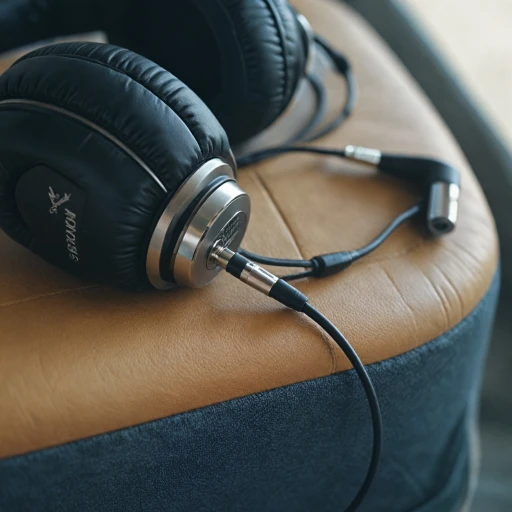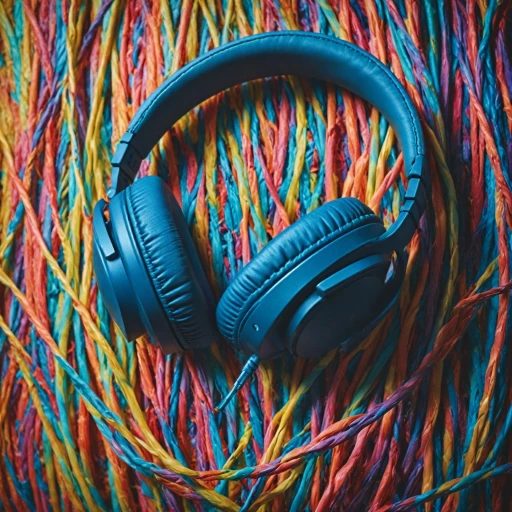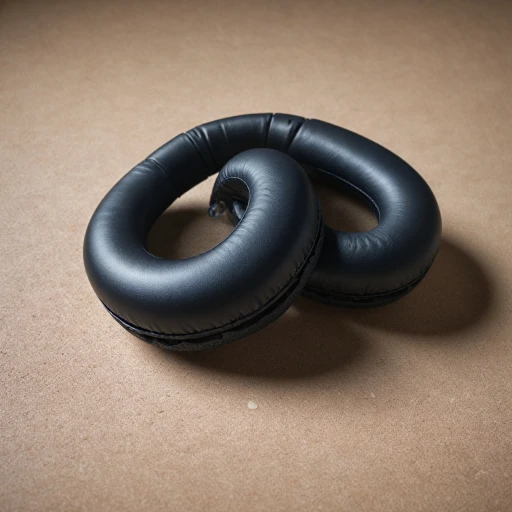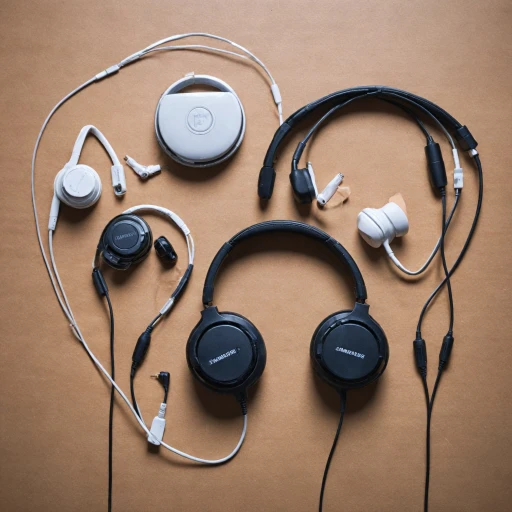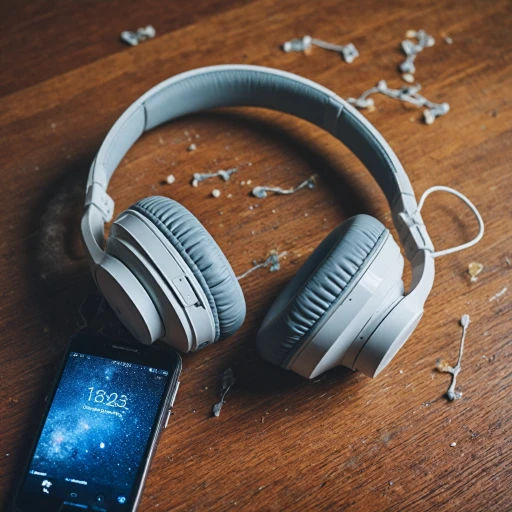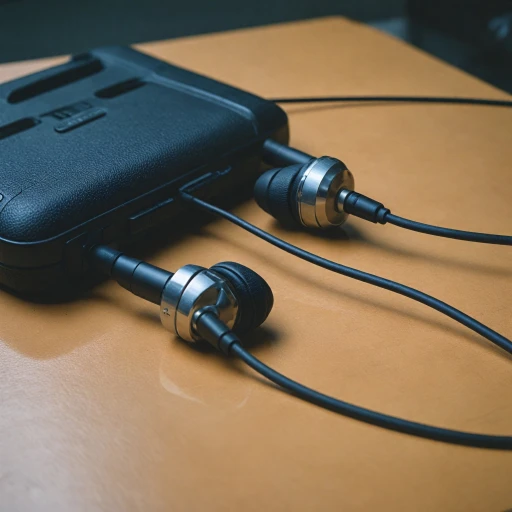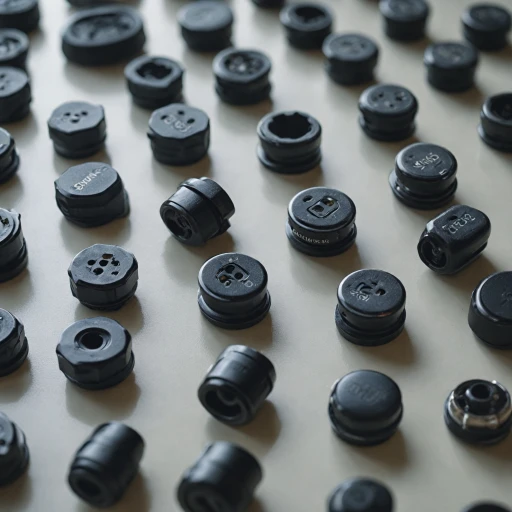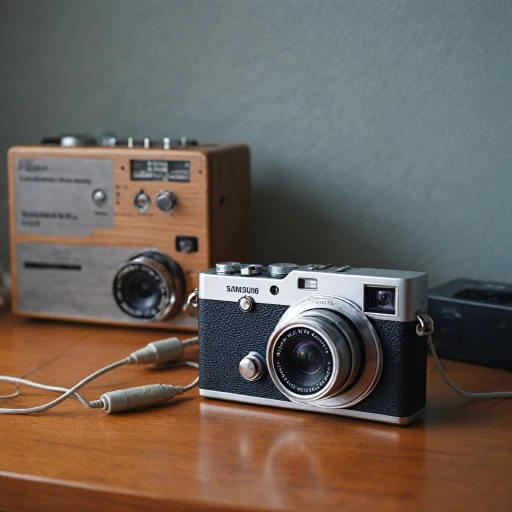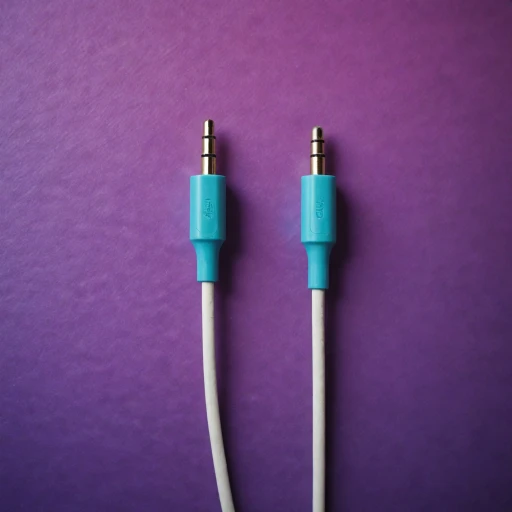
The Role of Adapters in Audio Equipment
In the diverse world of audio equipment, adapters play a crucial role in ensuring compatibility between various devices. Whether it's connecting headphones to amplifiers, or bridging a cable with a plug that fits, adapters like the 1/4 to 1/8 adapter streamline your auditory experience. This seamless connection means you get high-quality sound, which is especially important for professionals in recording studios or live sound environments.
Adapters are indispensable accessories for audio enthusiasts and professionals alike. They facilitate connections between instruments, microphones, and signal processors, enhancing the audio output through devices like electric and acoustic guitars, bass amps, and midi controllers. In fact, for anyone who regularly ventures into music setups involving drums or acoustic performances, adapters ensure a smooth integration of gear.
The importance of using a reliable adapter cannot be overstated, as the quality of your audio largely depends on the quality of the connection. Issues might arise from using poorly manufactured adapters which can result in signal loss or audio interference. To prevent such scenarios, opting for gold plated adapters and purchasing from trusted shops would be a prudent choice. For further reading on related audio gear, check out this comprehensive guide.
What is a 1/4 to 1/8 Adapter?
Delving into the Specifics of a 1/4 to 1/8 Audio Adapter
In the realm of audio equipment, the need for various adapters, such as a 1/4 to 1/8 adapter, is commonplace. This particular adapter plays a critical role in the connectivity of audio devices, predominantly noise canceling headphones and other audio gear. A 1/4 to 1/8 adapter, often referred to as a headphone adapter, essentially serves as a bridge between different plug sizes. The 1/4 inch stereo plug is typically found in professional audio equipment, such as electric guitars, bass amps, and high-end home stereo systems. Conversely, the 1/8 inch stereo (also known as 3.5 mm) is what you’ll see in most consumer electronics, including smartphones, laptops, and smaller portable devices. Most commonly, a 1/4 to 1/8 audio adapter is a compact accessory that allows you to connect headphones with a 1/4 inch plug to a device with a 1/8 inch jack, or vice versa, facilitating compatibility across a wide array of devices. For example, if you're using top-notch noise canceling headphones designed with a 1/4 inch stereo adapter in a live sound environment or in studio recording where you typically find 1/8 inch outputs, this little gadget becomes invaluable. Among its features, an excellent audio adapter might boast a gold plated plug, enhancing longevity and ensuring optimal signal clarity by reducing the potential for corrosion. Accessories like this are often available in audio shops and can be viewed as a crucial asset in any audiophile’s toolbox, delivering seamless connection and minimized audio loss in setups involving different equipment, from stereo amps to midi controllers. In our detailed insight about TRS cables, we delve deeper into how such cables interact with different adapters and improve audio experiences, making them a worthy addition to your cart when considering gear for both amateur and professional setups.Why Use a 1/4 to 1/8 Adapter with Noise Canceling Headphones?
Enhancing Audio Experience with the Right Adapter
Utilizing a 1/4 to 1/8 adapter in conjunction with noise canceling headphones is pivotal for maximizing your audio experience. But why exactly should you consider this adapter for your setup? First and foremost, it's about compatibility. Many high-quality audio equipment, including amps, electric guitars, and midi controllers, often sport a 1/4-inch plug. However, typical headphones, especially noise-canceling models, come with a 1/8-inch (3.5 mm) headphone adapter. The cable's size disparity necessitates a 1/4 to 1/8 adapter, ensuring seamless connectivity between your headphones and audio accessories. Moreover, a 1/4 to 1/8 audio adapter ensures that the robust power and pristine audio signals from instruments or recording equipment can be effectively transmitted. This is particularly beneficial for musicians involved in both live sound and studio environments. For instance, bass amps or guitar pedals require high-quality signals for optimal performance, which this adapter facilitates by maintaining stereo sound integrity. For home recording enthusiasts, using a 1/4 to 1/8 adapter with headphones is vital for simultaneous session monitoring and mixing. In a shop scenario or when jamming with acoustic guitars and electric guitars, this adapter allows your noise-canceling headphones to connect effortlessly to various audio interfaces, signal processors, and drum machines, eliminating the need for multiple plug adapters. Additionally, many premium 1/4 to 1/8 adapters come with gold-plated plugs to minimize signal loss, offering free shipping and competitive prices online. Make sure to check the current price options when adding one to your cart. Whether enhancing your ensemble of midi and acoustic gear or navigating the tangle of cables and strings, a quality stereo adapter proves itself an indispensable accessory for expanding your auditory pursuits. Thus, investing in a robust 1/4 to 1/8 headphone adapter is not just about compatibility; it’s about elevating your entire audio setup to new acoustic heights.Common Scenarios for Using a 1/4 to 1/8 Adapter
Practical Uses of Headphone Adapters in Everyday Audio Setups
When diving into the world of audio equipment, one quickly discovers the importance of various adapters and accessories, especially when pairing components such as noise canceling headphones with other gadgets. One essential accessory is the 1/4 to 1/8 adapter, which proves invaluable in multiple scenarios:- Musical Instruments: Acoustic and electric guitars, as well as bass amps, often have 1/4 inches stereo outputs. To connect these with headphones or other devices equipped with a 1/8 inch jack, an adapter is necessary.
- Home Audio Systems: Many home stereo systems primarily feature 1/4 inch outputs, which require an adapter for connection to most consumer headphones, particularly modern noise canceling models with a 3.5 mm input. This small but vital accessory enables seamless integration and optimal audio experience.
- Recording Studios: Recording environments often use a range of equipment such as amps, midi controllers, and electric guitars, with varying plug sizes. Here, a suitable adapter can ensure quick transitions between devices without the need for continual re-cabling.
- Live Sound Systems: In live sound scenarios, gear including microphones, string instruments, and other audio peripherals may necessitate a 1/4 to 1/8 adapter for monitoring sound through headphones and maintaining professional sound quality during gigs.
- Educational Settings: Using audio adapters is crucial in schools and music shops, where students and customers often interact with multiple audio setups, from keyboards and drums to diverse audio outputs.
Choosing the Right Adapter for Your Needs
Picking the Ideal Audio Adapter for Your Noise-Canelling Headphones
When it comes to noise-canceling headphones, selecting the appropriate adapter is crucial to ensure optimal audio performance. The market offers a variety of audio adapters, each designed with specific features to cater to different needs. Here’s a concise guide to help you make the right choice:- Compatibility: First and foremost, ensure that the adapter is compatible with your specific headphones and audio equipment. It's important that the input and output match the sizes, like 1/4 inch to 1/8 inch, to facilitate seamless connections.
- Quality of Material: Opt for adapters with gold-plated connectors as they tend to offer better signal transmission and corrosion resistance, enhancing the overall audio quality. This is especially beneficial when using electric guitars or signal processors.
- Cable Length: Assess the required cable length for your setup, as adapters can vary from short plug attachments to longer cords. This is crucial in settings involving live sound or studio recording where mobility might be necessary.
- Price and Brand: While shopping, compare the current price among trusted brands. Consider checking if there’s an option for free shipping or bundle deals that include other accessories like cases gig for guitar or bass amps.
- Purpose: Identify your primary use case. For tasks involving recording or using devices like midi controllers, ensuring the adapter supports stereo signals is vital. For acoustic guitars and amps, an adapter that accommodates the audio power requisite is essential.
Troubleshooting Adapter Issues
Resolving Common Adapter Problems
Even with the right 1/4 to 1/8 adapters, occasionally, you might face issues that disrupt your listening experience. Whether you’re connecting your noise canceling headphones to amps or using your adapter for an electric guitar, troubleshooting these problems can often come down to a few key areas.- Check the Fit and Connection: A poor fit or insecure connection can cause audio disruptions. Ensure that your headphone adapter fits snugly into both the plug and cable. Any loose connection can impact the signal, leading to audio interruptions.
- Inspect for Physical Damage: Over time, adapters can suffer from wear and tear. Look for any visible damage such as bent pins or frayed cables. These physical issues can hinder the effectiveness of the adapter, impacting sound quality.
- Compatibility with Accessories: Not all adapters are created equal. When using additional accessories like signal processors or power amps, verify that your adapter is compatible. Check specifications related to stereo adapter requirements and ensure all components match.
- Quality of Materials: Gold plated connectors can offer better connectivity and durability, reducing corrosion and enhancing sound quality. If signal quality is a frequent issue, consider investing in a higher quality audio adapter.
- Test with Different Equipment: Experiment using different audio accessories like midi controllers or acoustic guitars. If the issue persists across different equipment, the adapter may be the issue.
- Shop for a New Adapter: If issues continue, it may be time to shop for a new 1/4 to 1/8 adapter. Look for options that offer free shipping or a favorable current price, ensuring you get good value for money.

